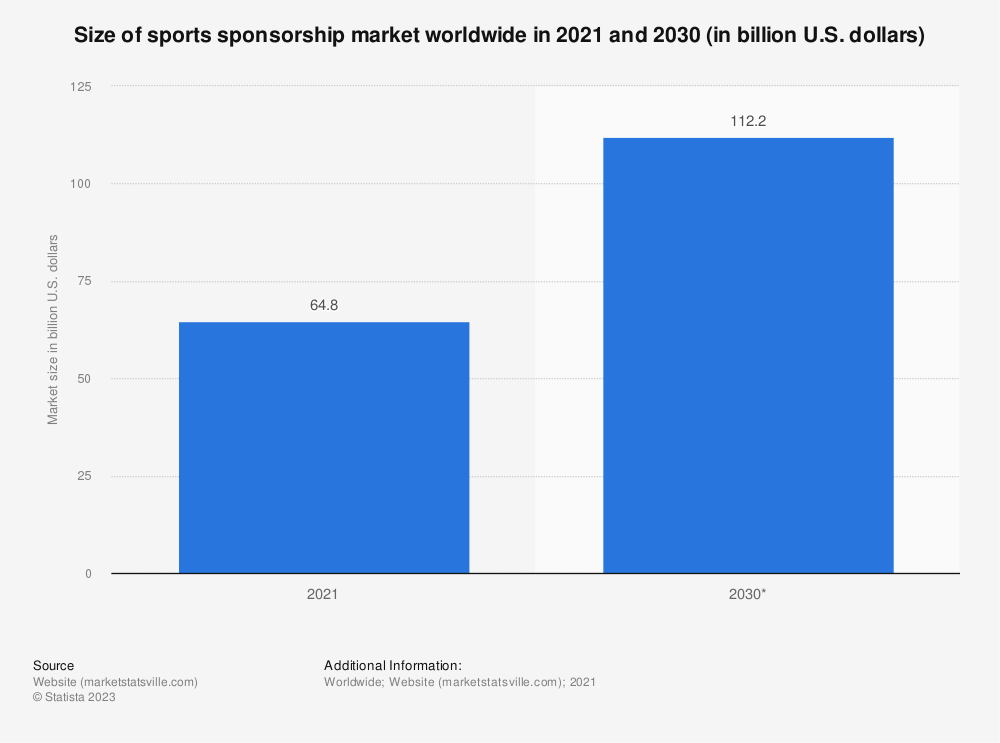In the world of sports sponsorship, creating a meaningful connection with audiences is paramount to achieving long-term success. Emotion-driven branding has emerged as a powerful strategy that not only captures attention but also unlocks the true value of sport sponsorship. By leveraging the emotional appeal of sports, brands can forge deep connections with fans, enhancing brand loyalty, and driving tangible business outcomes. We now explore how your brand or company can profit from emotion-driven branding and unlock the full potential of sport sponsorship.
Understanding Emotion-Driven Branding:
Emotion-driven branding is centered around eliciting powerful emotions from consumers and leveraging them to create a lasting bond between the brand and its target audience. In the context of sports sponsorship, this approach goes beyond mere logo placements and advertisements. It aims to tap into the passion, excitement, and shared experiences that sports evoke among fans. By aligning the brand’s values with the emotional aspects of sports, sponsors can create a more authentic and impactful connection with their target audience.
How Sponsorship transfers Emotions from Fans to Brands:
The emotions fans experience while watching athletes influence their perceptions of associated brands. In stadiums, as fans cheer alongside athletes, a collective emotional energy emerges. Brands aligned with athletes can tap into this energy, transferring it to their own brand image. Fans witnessing an athlete’s skill and triumph feel inspiration, excitement, and pride, associating those emotions with the athlete and the brands they represent.
For example, an athlete’s display of determination and resilience can evoke feelings of motivation and perseverance among fans. When a brand aligns itself with that athlete, it can be perceived as embodying similar qualities, resonating with fans who share those values. This emotional transfer helps create a strong association between the athlete, the emotions they evoke, and the brand itself.
Additionally, athletes often become role models for their fans. Their achievements, stories, and personalities inspire admiration and connection. When a brand aligns with an athlete who embodies qualities that fans aspire to possess, such as teamwork, integrity, or a never-give-up attitude, fans start associating those positive attributes with the brand as well.
By strategically leveraging the emotions evoked by athletes, brands can position themselves as more than mere sponsors. They become an integral part of the emotional experience that fans have while watching their favorite athletes. This emotional connection not only fosters brand loyalty but also increases the likelihood that fans will choose products or services endorsed by the athletes they admire.
Leveraging Sponsorship Assets:
Emotion-driven branding is not limited to traditional sponsorship assets such as logos on jerseys or stadium signage. Brands should explore innovative ways to connect with fans on an emotional level. This can include experiential activations, social media campaigns, fan engagement initiatives, and creating shared experiences. By immersing fans in memorable experiences and capturing their emotions during key sporting moments, brands can create a lasting impression and strengthen their emotional bond with the target audience.
Measuring Sponsorship Impact:
While emotional connections can be challenging to quantify, measuring the impact of emotion-driven branding is essential to gauge the effectiveness of sport sponsorship, especially considering the significant market size. According to recent statistics, the sports sponsorship market was estimated at a staggering 64.8 billion U.S. dollars in 2021, with projected growth of 7.5 percent until 2030, reaching a value of 112.2 billion U.S. dollars.

With such substantial investments involved, it becomes crucial for brands to analyze key metrics like social media engagement, sentiment analysis, brand affinity, and customer loyalty to assess the success of their emotional branding initiatives. Additionally, post-campaign surveys and qualitative feedba ck can provide valuable insights into the emotional resonance of sponsorship activations, allowing brands to optimize their strategies and maximize sponsorship impact.
Emotional Branding Success Stories:
Several brands have successfully leveraged emotion-driven branding in sport sponsorship to create impactful and memorable campaigns. Notable examples include Nike‘s “Just Do It” campaign, which has resonated with athletes and fans worldwide, and Red Bull‘s high-energy and adrenaline-fueled activations that align with extreme sports enthusiasts. Their innovative and daring campaigns, such as the Red Bull Stratos space jump and the Red Bull Cliff Diving World Series, captured the imagination of millions, delivering exhilaration, awe, and inspiration to viewers worldwide.
These brands have effectively tapped into the emotional aspects of sports, creating authentic connections that have translated into long-term brand loyalty and business growth.
Conclusion
Emotion-driven branding is the key to unlocking the full value of sport sponsorship. By understanding the emotional connection fans have with sports and strategically aligning their brand values with these emotions, sponsors can create meaningful and authentic connections. Through compelling narratives, experiential activations, and a genuine passion for the game, brands can forge deep emotional bonds with fans, driving brand loyalty and business success. Embrace emotion-driven branding, and unlock the true potential of sport sponsorship.
Remember, in the world of sport sponsorship, it’s the emotional connection that truly makes a difference.

Leave a Reply